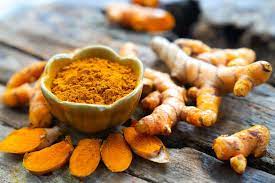A promising solution for indigestion may already be lurking in your kitchen spice rack, as indicated by a recent study. Published in the medical journal BMJ, this study, which unveiled its findings on Monday, investigated the response of over 150 individuals with dyspepsia (commonly referred to as indigestion) to three different treatments: the medication omeprazole, turmeric containing curcumin, and a combination of the two.
Omeprazole is a widely used drug known for its effectiveness in treating specific heart and esophageal conditions by reducing stomach acid levels, according to the Mayo Clinic.
The participants’ symptoms, which encompassed stomach pain, bloating, nausea, and an early sense of fullness, were assessed at the 28th and 56th day of the treatment. This evaluation utilized the Severity of Dyspepsia Assessment, a questionnaire designed to gauge the severity of indigestion.
The study’s outcomes revealed no significant distinctions in symptom alleviation among the groups receiving omeprazole, turmeric, or the combination of both treatments.

Dr. Krit Pongpirul, the lead author of the study and an associate professor in the department of preventive and social medicine at Chulalongkorn University in Bangkok, Thailand, remarked, “In addition to its anti-inflammatory and antioxidant properties, curcumin/turmeric could be a viable option for treating dyspepsia with comparable efficacy to omeprazole.”
Turmeric has a longstanding history of medicinal use in Southeast Asia for addressing stomach discomfort and various inflammatory conditions. In the United States, it has primarily served as an anti-inflammatory and antioxidant dietary supplement for alleviating conditions such as osteoarthritis and irritable bowel syndrome.
However, this clinical trial marks the first instance in which curcumin/turmeric has been directly compared to omeprazole in the treatment of dyspepsia, according to Pongpirul.
Turmeric’s Impact on Indigestion and Ongoing Questions
The exploration of turmeric’s influence on indigestion is a logical step since its constituent, curcumin, has been extensively studied in various inflammatory conditions, including inflammatory bowel disease and arthritis, according to Dr. Yuying Luo, a gastroenterologist and assistant professor of gastroenterology at the Icahn School of Medicine at Mount Sinai in New York City. Some studies have even shown that curcumin can be beneficial when used alongside other medications.
Nevertheless, Luo raised a few queries regarding the new study. She pointed out that the scale employed by the researchers to assess symptoms is not the most commonly used one for gauging indigestion improvement. She also expressed a desire to see more frequent symptom measurements.
“I don’t think this single study alone provides sufficient grounds for me to make a recommendation. Proceed with caution,” she cautioned. However, she added that given the extensive ongoing research on the compound’s impact on various inflammatory conditions, more insights may emerge soon.
Luo emphasized the importance of consulting with a healthcare professional before increasing turmeric consumption in your diet for improved digestion. She highlighted a few case studies indicating liver injury associated with curcumin and the necessity of ensuring that turmeric does not interact adversely with any other medications you may be taking.
Pongpirul echoed these sentiments, stating, “Consumers should be aware of side effects of curcumin extracts such as allergy and bleeding risk, especially for those who take anticoagulant or antiplatelet medications.” He added that curcumin and turmeric are generally considered safe when consumed in the typical amounts found in food.
Typically, turmeric spices contain around 3% curcumin, as per a 2009 study. The 2-gram dose administered in this study is relatively low when compared to the curcumin extracts commonly found in supplements, according to Pongpirul. Therefore, if one of the treatments, turmeric or omeprazole, proves to be equally effective in reducing the risk of side effects, taking both may not be necessary.
While Luo awaits further studies before recommending turmeric as a treatment, she suggested discussing the option with your healthcare provider in conjunction with your current medications. However, she advised giving each alternative two to four weeks to assess their full impact, noting that not all patients respond identically to medications, which is a common challenge in treating disorders.











